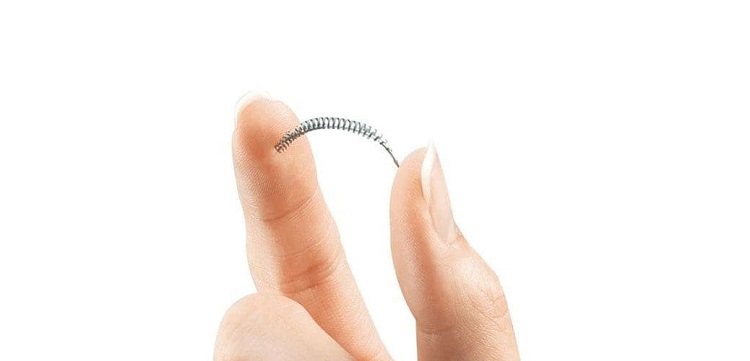Australian women have been urged to join a class action against the manufacturer of a permanent contraceptive device that has left tens of thousands of patients worldwide with perforations, nickel poisoning and chronic pain.
The device, known as Essure, is a soft, flexible insert placed into each of the patient’s fallopian tubes. Over three months a barrier forms around the inserts, which is intended to block the fallopian tubes and permanently prevent pregnancy.

But there have been reports women experienced changes in menstrual bleeding, unintended pregnancy, chronic pain, perforation and migration of the device, allergic reactions and immune-type reactions after being implanted with the device, which is manufactured by the pharmaceutical company Bayer.
Slater and Gordon announced on Monday it would lead a class action against Bayer representing Australian women suffering severe complications. Slater and Gordon associate Ebony Birchall said the device had been known to corrode, exposing women to nickel poisoning. For many women, a complete hysterectomy was the only safe way to remove the device.
Birchall said the class action would consider whether the product was inherently defective.
“Essure was hailed as the new wave of contraceptive devices,” she said. “Unlike traditional permanent contraceptive surgery, Essure was marketed as being fast, effective and minimally invasive, it could be inserted in your doctor’s office. However, for the women who have experienced complications, it has been incredibly damaging.”
Tanya Davidson had the device inserted in 2010 and is one of the women taking part in the class action after experiencing side effects such as hair loss, severe menstrual bleeding, chronic fatigue, gastric issues, stabbing ovarian pain and loss of cognitive function.
“Every day I wake to the feeling of brain fog, have trouble remembering simple things like the names of every day objects or get lost mid-sentence,” she said. “I was terrified I was experiencing the onset of early Alzheimer’s disease.”
She was eventually diagnosed with a nickel allergy and in February 2016 had the device removed. However, during that procedure, the device broke and she had to undergo a hysterectomy six months later. She still suffers from side effects.
Australia’s drugs and medical devices watchdog, the Therapeutic Goods Administration, announced in May last year that Bayer had decided to discontinue the distribution of Essure in Australia “for business reasons”.
“The Australian Register of Therapeutic Goods entry will be cancelled and there will be no further implantations of Essure in Australia,” the TGA said in a statement at the time.
Female sterilisation is one of the most common contraception methods worldwide. Laparoscopic sterilisation has been the primary method for decades, a surgical procedure that clips, stitches or burns the fallopian tubes to prevent pregnancy.
Hysteroscopic sterilisation was developed more recently and involves implanting the Essure device to block the fallopian tubes. It does not require general anaesthetic or surgery, unlike laparoscopic sterilisation.
Research published in the British Medical Journal in October found women implanted with Essure had a significantly heightened risk of needing further surgery due to complications than those using the more traditional laparoscopic procedure.
The study found use of the device, pioneered by the late Adelaide researcher John Kerin, was associated with a more than 10-fold higher risk of additional surgery, equivalent to around 21 additional re-operations per 1,000 patients. The authors warned the device was a “serious safety concern”.
“The hysteroscopic approach was reported to be associated with a higher risk of unintended pregnancy and has a three-month post-procedure waiting period before sterilisation becomes effective,” the study found. “Other reported complications related to device include pelvic pain, haemorrhage and device migration or incompatibility that can lead to re-operation.”
The Essure device is the subject of about 16,000 lawsuits in the US.
Bayer has not provided details of how many of the device were sold in Australia or worldwide. A spokeswoman said Bayer was aware of the Slater and Gordon class action and that the company was “committed to the proper and objective consideration of any legal claim made should such a claim be lodged”.
“Bayer respects the rights of every individual to seek legal advice and take such further action as they may be advised,” she said. “Bayer will continue to support healthcare providers in their management of all patients using Bayer medicines and medical devices. We encourage women who have any questions about Essure to contact their healthcare provider.”
____________________________________
(Published by The Guardian, August 13, 2018)